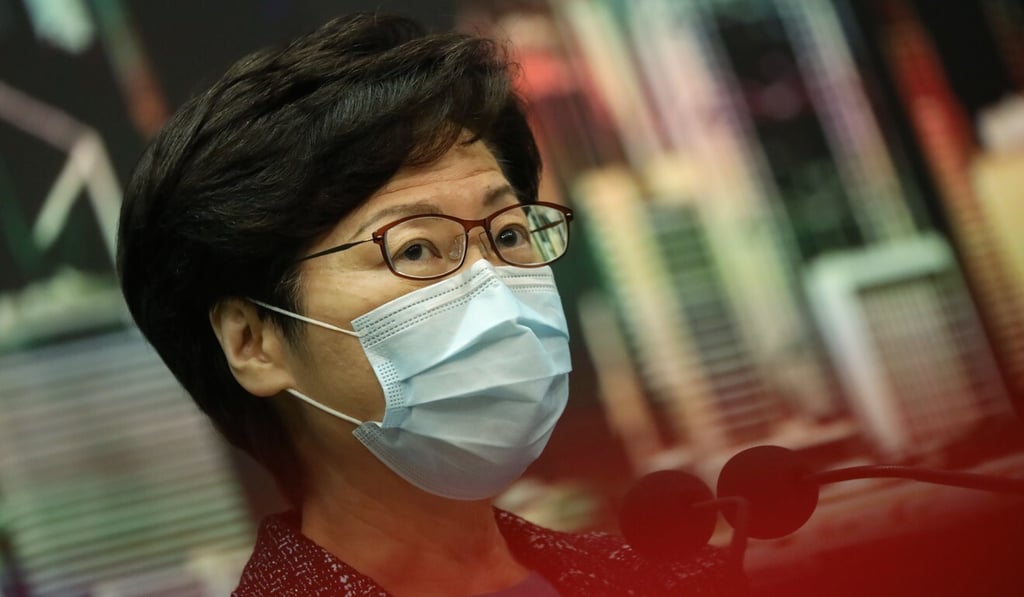Advertisement
Hong Kong leader Carrie Lam’s warning to schools over teaching of ‘fallacious arguments’ draws fire from union
- City’s biggest teachers’ union calls for an apology from chief executive for ‘insulting’ remarks in interview
- Lam says there are problems in education that need to be fixed, and government will this year announce how to handle controversial liberal studies subject
Reading Time:3 minutes
Why you can trust SCMP

Hong Kong’s leader has urged school managers to help guard against pupils being affected by “fallacious arguments”, warning that some people have intentionally infused various subjects with misconceptions.
But Chief Executive Carrie Lam Cheng Yuet-ngor’s remarks in a newspaper interview immediately drew fire from Hong Kong’s biggest teachers’ union, which said most principals and teachers carried out their jobs professionally, and urged her to apologise and withdraw her “insulting” comments.
In the interview with pro-Beijing newspaper Ta Kung Pao published on Monday, Lam said there were problems in education that had to be fixed, and the government would announce this year how to handle the controversial subject of liberal studies, which some critics have blamed for inciting students to take part in the months-long social unrest.
Advertisement
Lam said that aside from the Education Bureau, school management and sponsoring bodies had a responsibility for gatekeeping teaching materials, as misconceptions could filter into subjects such as liberal studies, or even Chinese and English.

Advertisement
“That’s why we need people to be responsible for gatekeeping purposes,” she said, stressing the education sector should not become a “chicken coop without a door”.
Advertisement
Select Voice
Select Speed
1.00x